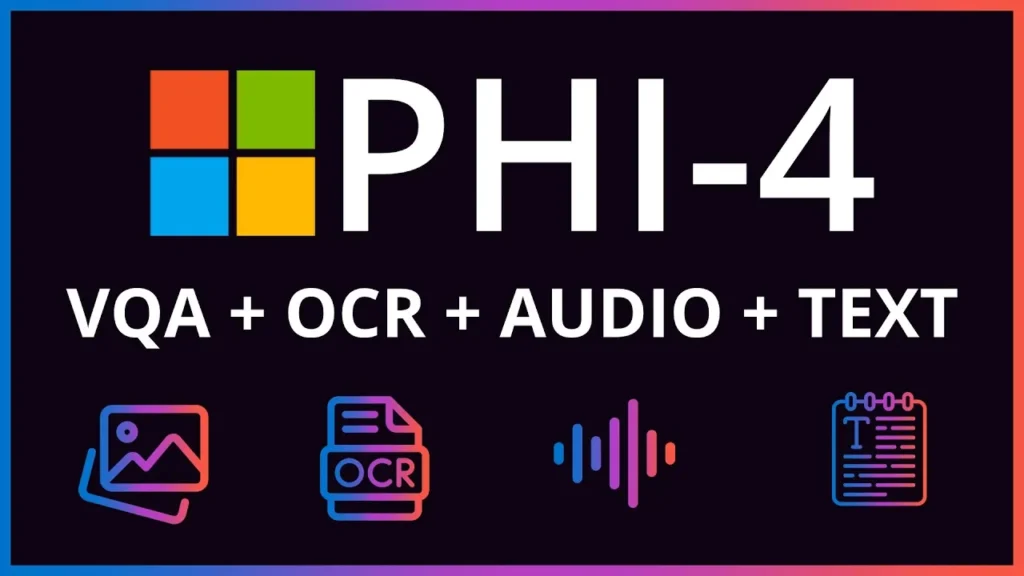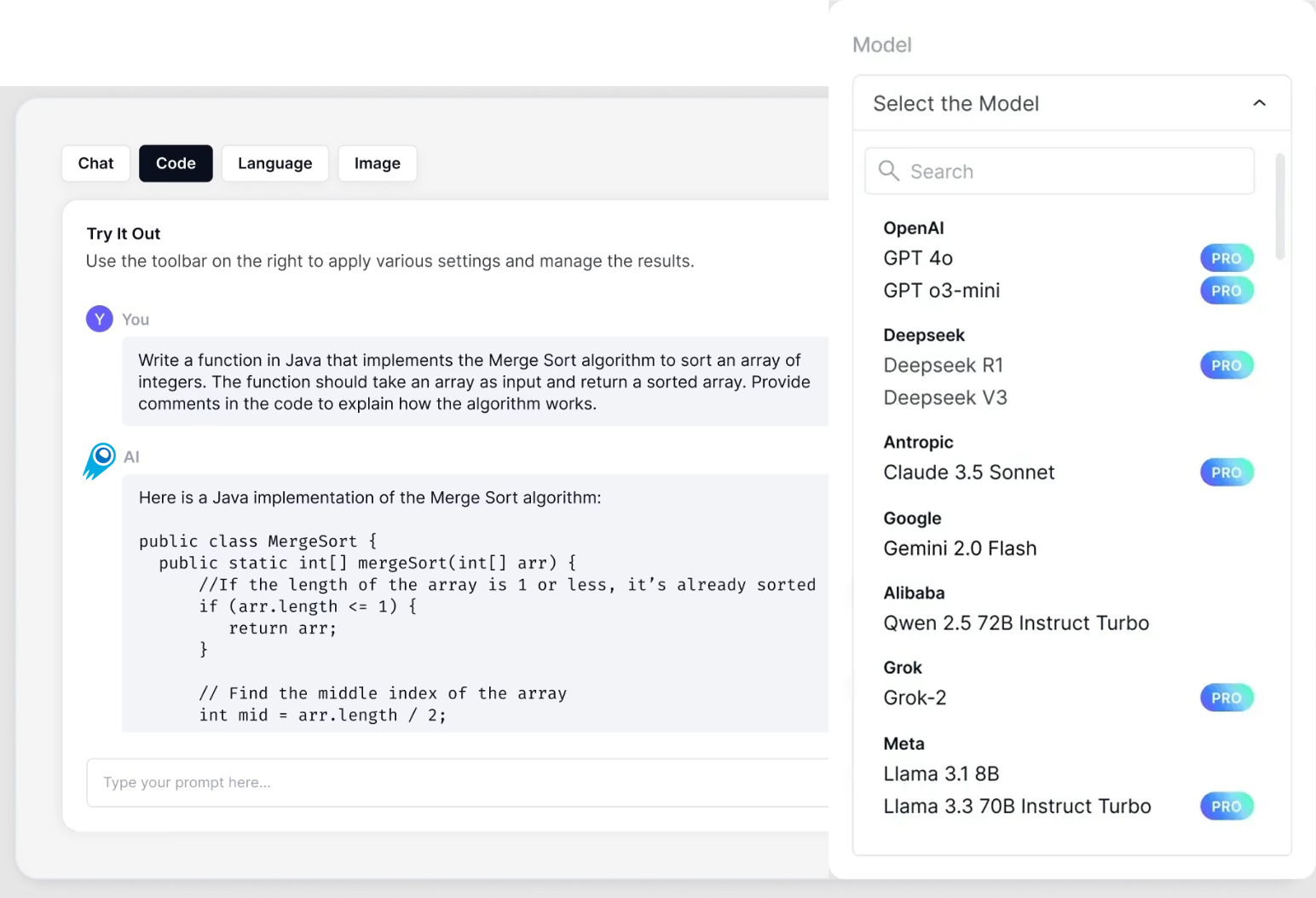Phi-4-Mini API represents Microsoft‘s latest innovation in small language models within the Phi-4 series, focusing primarily on text tasks. With a compact framework housing 3.8 billion parameters, Phi-4-Mini excels in speed and efficiency thanks to its dense decoder-only Transformer architecture.

Key Characteristics of Phi-4-Mini
The Phi-4-Mini model is remarkable for its ability to perform a variety of tasks such as text reasoning, mathematical calculations, programming, and function calls. Despite its relatively small size, Phi-4-Mini competes with—and often surpasses—larger language models in these areas:
- Text Reasoning: It excels in tasks requiring logical processing, offering performance akin to models with substantially larger parameters.
- Comprehensive Support for Long Texts: Capable of processing sequences up to 128K tokens, Phi-4-Mini is ideal for handling extensive text efficiently.
- Scalable Function Integration: Phi-4-Mini’s function calling capabilities allow seamless integration with external tools, APIs, and data sources, enhancing its versatility in application scenarios.
Technical Principles Behind Phi-4-Mini
Phi-4-Mini’s architecture is grounded in sophisticated technical design aimed at maximizing efficiency and adaptability:
- Transformer Architecture: The model is built on a decoder-only Transformer framework, utilizing self-attention mechanisms to effectively manage long-term dependencies within text sequences.
- Grouped-Query Attention: This mechanism improves computational efficiency by processing queries in grouped batches, bolstering the model’s capacity for parallel processing.
- Shared Embedding Strategy: By sharing input and output embeddings, Phi-4-Mini reduces parameter load, enhancing task adaptability and operational efficiency.
These architectural choices tailor Phi-4-Mini to excel in natural language generation while maintaining high performance across diverse use cases.
Data and Training Details
Language Training Data
The training data for Phi-4-Mini includes high-quality reasoning-rich text data, especially carefully curated code datasets to enhance the performance of programming tasks. The pre-training data is improved with filters and data mixing strategies to ensure high quality and diversity of the data. Specifically, the pre-training data includes a corpus of 5 trillion tokens, which is larger and higher quality than Phi-3.5-Mini.
Vision-Language Training Data
The pre-training phase of Phi-4-Multimodal involves rich image-text datasets, including interleaved image-text documents, image-text pairs, image localization data, etc. The pre-training process involves 0.5 trillion tokens, combining visual and textual elements. The supervised fine-tuning (SFT) phase uses a public multimodal instruction-tuned dataset and a large-scale internal multimodal instruction-tuned dataset, covering tasks such as natural image understanding, chart, table and diagram reasoning, PowerPoint analysis, OCR, multi-image comparison, video summarization, and model security.
Visual-Speech Training Data
Phi-4-Multimodal was trained on visual-speech data, covering both single-frame and multi-frame scenarios. The high quality of the data was ensured by converting user queries from text to audio through an internal text-to-speech (TTS) engine. Specifically, the researchers used an internal ASR model to transcribe the audio and calculate the word error rate (WER) between the original text and the transcription, and the quality of the final visual-speech data was ensured through WER filtering.
Speech and Audio Training Data
The training data for speech/audio features includes automatic speech recognition (ASR) transcription data and post-training data, covering a variety of tasks such as automatic speech translation (AST), speech question answering (SQA), speech summarization (SSUM), and audio understanding (AU). The pre-training data includes about 2 million hours of anonymized internal speech-text pairs, covering 8 supported languages. The post-training data includes about 100 million carefully curated speech and audio SFT samples, covering tasks such as ASR, AST, SQA, SQQA, SSUM, and AU.
Related topics:Best 3 AI Music Generation Models of 2025
Optimal Deployment and Compatibility
Phi-4-Mini is optimized for cross-platform compatibility, facilitating deployment in various computing environments:
- ONNXRuntime Optimization: Ensures the model performs efficiently in low-cost, low-latency settings, supporting broad cross-platform application.
- Resource-Constrained Environments: Its lightweight nature makes Phi-4-Mini suitable for edge computing deployments where resources are limited, maximizing operational efficiency without compromising capabilities.
Training Philosophy and Data Utilization
The training process of Phi-4-Mini is rigorous, focusing on high-quality, diverse datasets to bolster its reasoning and logic handling capabilities:
- Screened Training Data: Incorporates synthetic and targeted datasets to refine its mathematical and programming task performance.
- Adaptation and Precision: The training strategy emphasizes data quality and diversity, preparing the model for complex reasoning tasks across varied applications.
Real-World Use Cases
Phi-4-Mini offers broad applications in numerous scenarios, showcasing its adaptability and utility:
- Intelligent Answer Systems: Performs exceptionally well in complex question-answer tasks, providing accurate and swift responses suitable for customer service applications.
- Programming Assistance: Offers developers powerful tools for code generation and testing, enhancing productivity and workflow efficiency.
- Multilingual Capabilities: Supports translation and processing across multiple languages, making it ideal for global language services and cross-cultural applications.
- Edge Computing and Deployment: Optimized for portable device deployment, Phi-4-Mini thrives in edge computing scenarios where efficient processing is paramount.
Conclusion:
Phi-4-Mini, with its innovative design and exceptional performance in text processing tasks, represents a significant advancement in small language model technology. This model provides developers and AI users a high-efficiency tool capable of managing extensive and diverse applications without demanding substantial computational resources. As Microsoft’s Phi-4 series progresses, Phi-4-Mini’s adaptability and integration capabilities assure its continued relevance and utility in evolving AI landscapes, ultimately serving as a pivotal resource for future developments in artificial intelligence.
How to call this Phi-4-Mini API from CometAPI
1.Log in to cometapi.com. If you are not our user yet, please register first
2.Get the access credential API key of the interface. Click “Add Token” at the API token in the personal center, get the token key: sk-xxxxx and submit.
3. Get the url of this site: https://api.cometapi.com/
4. Select the Phi-4-Mini endpoint to send the API request and set the request body. The request method and request body are obtained from our website API doc. Our website also provides Apifox test for your convenience.
5. Process the API response to get the generated answer. After sending the API request, you will receive a JSON object containing the generated completion.


